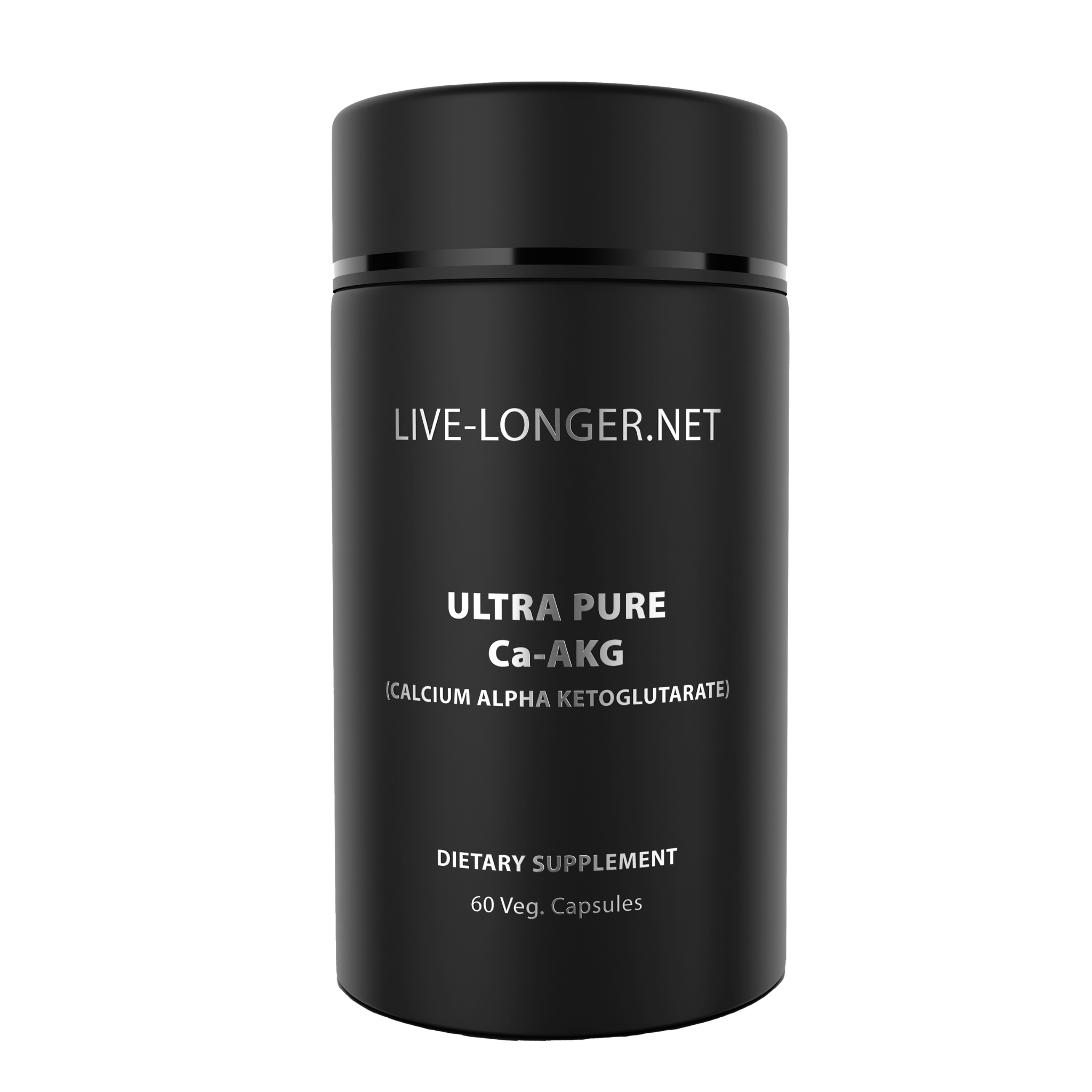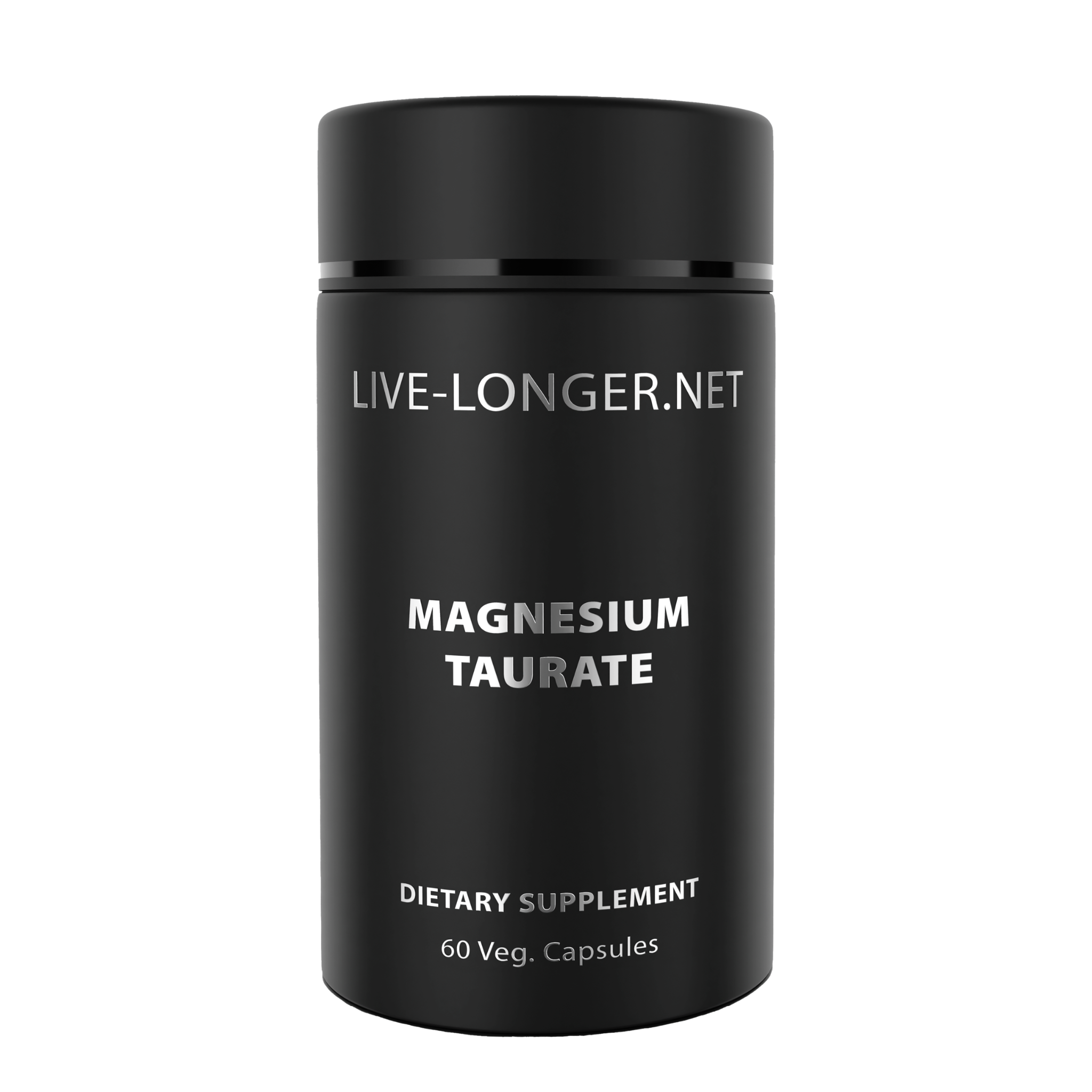Maintaining a healthy gut is essential for overall well-being, yet it's often overlooked until issues like bloating, indigestion, or stomach discomfort arise. Did you know that your gut isn't just about digestion? It's a powerhouse responsible for nutrient absorption, immunity, and even mental clarity (1).
A happy gut means a happy you!
With modern diets rich in processed foods and daily stressors, maintaining optimal gut health can be tricky. Fortunately, supplements can help restore balance and keep your digestive system functioning at its best. Whether you're struggling with occasional discomfort or looking to optimize your digestion, the right supplements can make a world of difference.
In this article, we'll discuss the best supplements for gut health, covering well-researched options like probiotics, as well as some powerful supplements you might not have heard of yet. If you're wondering which supplement is right for you or how these can improve your digestion and overall health, read on!
Why Gut Health Matters?
Your gut isn't just a part of your digestive system. It's a central player in your overall health. It's home to trillions of microorganisms, known as the gut microbiome, which play a crucial role in everything from digestion to immunity and even mood regulation (1)(2).
When your gut is balanced, it digests food efficiently, absorbs nutrients, and keeps harmful bacteria in check. However, when things are out of balance, you might experience uncomfortable symptoms like bloating, gas, or irregular bowel movements.
But the consequences of poor gut health don't stop there.
Recent research has linked gut health to numerous conditions, including obesity, type 2 diabetes, and even depression (3). A study published in Biomedicine and Pharmacotherapy highlighted how an unhealthy gut microbiome can contribute to systemic inflammation, which negatively impacts your overall health (4). Simply put, if your gut isn't happy, your body won't be either.
Thankfully, there are ways to support and heal your gut. Diet plays a significant role, but supplements can provide targeted support to help restore balance faster and more effectively. These supplements, such as probiotics, digestive enzymes, and anti-inflammatory compounds, work by balancing the good bacteria in your gut, aiding digestion and reducing inflammation.
Taking control of your gut health is one of the best things you can do for your body. By incorporating the best supplements for gut health into your routine, you'll not only feel better but also support your long-term well-being.
The Role of Supplements in Supporting Gut Health
When it comes to maintaining a healthy gut, diet is the first line of defense. And there is no second thought to it.
However, in today's fast-paced world, it's not always easy to get the nutrients your gut needs from food alone. That's where supplements come in. They offer a convenient and effective way to fill in the gaps and support your digestive system.
But why do you need supplements in the first place?
Factors like processed foods, chronic stress, medications (especially antibiotics), and environmental toxins can disrupt the balance of your gut microbiome. This can lead to poor digestion, inflammation, and a weakened immune system (5).
Supplements are designed to help restore that balance.
For example, probiotics—often referred to as "good bacteria"—help maintain a healthy balance in your gut by increasing the number of beneficial microorganisms (6).
Other supplements, like digestive enzymes, assist in breaking down food, making it easier for your body to absorb essential nutrients (7). Meanwhile, anti-inflammatory supplements like quercetin can soothe irritation in the gut lining, promoting healing (8).
The key is to choose high-quality, natural supplements that are scientifically backed to support gut health. By incorporating supplements into your routine, you can support digestion, balance your microbiome, and improve overall well-being.
What is the Best Gut Health Supplement?
With so many great supplements available, you might be wondering, what is the best gut health supplement? The answer depends on your individual needs and digestive concerns. Each supplement plays a unique role in supporting your gut, and the best one for you will align with your specific health goals.
If you're looking to restore balance to your gut microbiome, probiotics are often the go-to option. They introduce beneficial bacteria that help with digestion, reduce bloating, and improve overall gut health (6).
On the other hand, if inflammation in the gut is your primary issue, quercetin and apigenin offer powerful anti-inflammatory benefits to help soothe the digestive tract (8)(9). For those focused on long-term gut health and healing, TMG and NMN can support the repair of the gut lining and protect against conditions like leaky gut.
Ultimately, the best supplements for gut health will vary based on your unique symptoms. At LiveLonger, we offer a range of high-quality, natural supplements designed to meet diverse gut health needs.
Whether you're dealing with bloating or inflammation or looking for long-term gut support, we have the right product for you. Explore our offerings and find the perfect supplement to optimize your digestion today.
What Does Probiotics Do? Benefits Beyond Digestion
You've probably heard that probiotics are great for digestion, but what do probiotics do beyond just helping you process food? Probiotics offer a wide range of benefits that go beyond the gut.
For one, they play a critical role in supporting your immune system. Since nearly 70% of your immune system is located in your gut, keeping a healthy balance of bacteria can help fend off harmful pathogens and keep you healthier overall (10)(11).
Probiotics are also linked to improved mental health, thanks to the gut-brain connection. Studies have shown that a balanced gut microbiome can reduce symptoms of anxiety and depression (12). So, by maintaining a healthy gut with the help of probiotics, you're also supporting your emotional well-being.
In short, probiotic supplements not only promote digestion but also offer these broader health benefits. It's one of the easiest ways to boost both your gut and your overall health in one simple step.
How to Add Supplements to Your Routine?
Adding gut health supplements to your daily routine can be a game-changer for your digestion and overall well-being. However, consistency is key when it comes to seeing results. It's important to take your supplements regularly and follow the recommended dosages to ensure you're getting the full benefits.
When starting out, it's a good idea to introduce one supplement at a time, giving your body the chance to adjust. For example, if you're starting with probiotics, take them at the same time every day—many people find taking probiotics with meals helps their digestion. Supplements like berberine or quercetin can be taken to reduce inflammation and balance gut bacteria, while TMG is excellent for those looking to support long-term gut repair.
To get the most out of these supplements, combine them with a balanced diet rich in fiber, fruits, and vegetables. Whole foods work alongside supplements to promote healthy digestion. Finally, remember that supplements work best when paired with healthy lifestyle choices, such as reducing stress and staying active.
The Key Message
Maintaining a healthy gut is essential for your overall well-being, and supplements can play a key role in achieving optimal digestion.
Whether you're dealing with bloating or indigestion or just want to improve your overall gut health, there's a supplement that can help.
At LiveLonger, we offer a wide range of high-quality, natural supplements designed to target different gut health needs. Start incorporating these powerful supplements into your daily routine and experience the benefits of a healthier, happier gut.
References
- Wilson DR, Binford L, Hickson S. The Gut Microbiome and Mental Health. Journal of Holistic Nursing: Official Journal of the American Holistic Nurses’ Association [Internet]. 2023 Apr 20;42(1):8980101231170487. Available from: https://pubmed.ncbi.nlm.nih.gov/37082808/
- Bull MJ, Plummer NT. Part 1: The Human Gut Microbiome in Health and Disease. Integrative medicine (Encinitas, Calif) [Internet]. 2014 Dec;13(6):17–22. Available from: https://www.ncbi.nlm.nih.gov/pmc/articles/PMC4566439/
- Hills RD, Pontefract BA, Mishcon HR, Black CA, Sutton SC, Theberge CR. Gut Microbiome: Profound Implications for Diet and Disease. Nutrients [Internet]. 2019 Jul 16;11(7):1613. Available from: https://www.ncbi.nlm.nih.gov/pmc/articles/PMC6682904/
- Zhao M, Chu J, Feng S, Guo C, Xue B, He K, et al. Immunological mechanisms of inflammatory diseases caused by gut microbiota dysbiosis: A review. Biomedicine & Pharmacotherapy [Internet]. 2023 Aug 1;164:114985. Available from: https://www.sciencedirect.com/science/article/pii/S0753332223007758
- Madison A, Kiecolt-Glaser JK. Stress, depression, diet, and the gut microbiota: human–bacteria interactions at the core of psychoneuroimmunology and nutrition. Current Opinion in Behavioral Sciences [Internet]. 2019 Aug;28(3):105–10. Available from: https://www.ncbi.nlm.nih.gov/pmc/articles/PMC7213601/
- Maftei NM, Raileanu CR, Balta AA, Ambrose L, Boev M, Marin DB, et al. The Potential Impact of Probiotics on Human Health: An Update on Their Health-Promoting Properties. Microorganisms [Internet]. 2024 Feb 1;12(2):234. Available from: https://www.mdpi.com/2076-2607/12/2/234
- Denhard M. Digestive Enzymes and Digestive Enzyme Supplements [Internet]. www.hopkinsmedicine.org. 2022. Available from: https://www.hopkinsmedicine.org/health/wellness-and-prevention/digestive-enzymes-and-digestive-enzyme-supplements
- Uyanga VA, Amevor FK, Liu M, Cui Z, Zhao X, Lin H. Potential Implications of Citrulline and Quercetin on Gut Functioning of Monogastric Animals and Humans: A Comprehensive Review. Nutrients [Internet]. 2021 Oct 25 [cited 2024 Sep 14];13(11):3782. Available from: https://www.ncbi.nlm.nih.gov/pmc/articles/PMC8621968/
- Salehi B, Venditti A, Sharifi-Rad M, Kręgiel D, Sharifi-Rad J, Durazzo A, et al. The Therapeutic Potential of Apigenin. International Journal of Molecular Sciences [Internet]. 2019 Mar 15;20(6):1305. Available from: https://www.ncbi.nlm.nih.gov/pmc/articles/PMC6472148/
- Wiertsema SP, van Bergenhenegouwen J, Garssen J, Knippels LMJ. The Interplay between the Gut Microbiome and the Immune System in the Context of Infectious Diseases throughout Life and the Role of Nutrition in Optimizing Treatment Strategies. Nutrients [Internet]. 2021 Mar 9;13(3):886. Available from: https://www.ncbi.nlm.nih.gov/pmc/articles/PMC8001875/
- Mazziotta C, Tognon M, Martini F, Torreggiani E, Rotondo JC. Probiotics Mechanism of Action on Immune Cells and Beneficial Effects on Human Health. Cells [Internet]. 2023 Jan 2;12(1):184. Available from: https://www.ncbi.nlm.nih.gov/pmc/articles/PMC9818925/
- Ferrari S, Mulè S, Parini F, Galla R, Ruga S, Rosso G, et al. The influence of the gut-brain axis on anxiety and depression: A review of the literature on the use of probiotics. Journal of traditional and complementary medicine [Internet]. 2024 May 1;14(3):237–55. Available from: https://www.sciencedirect.com/science/article/pii/S2225411024000300









